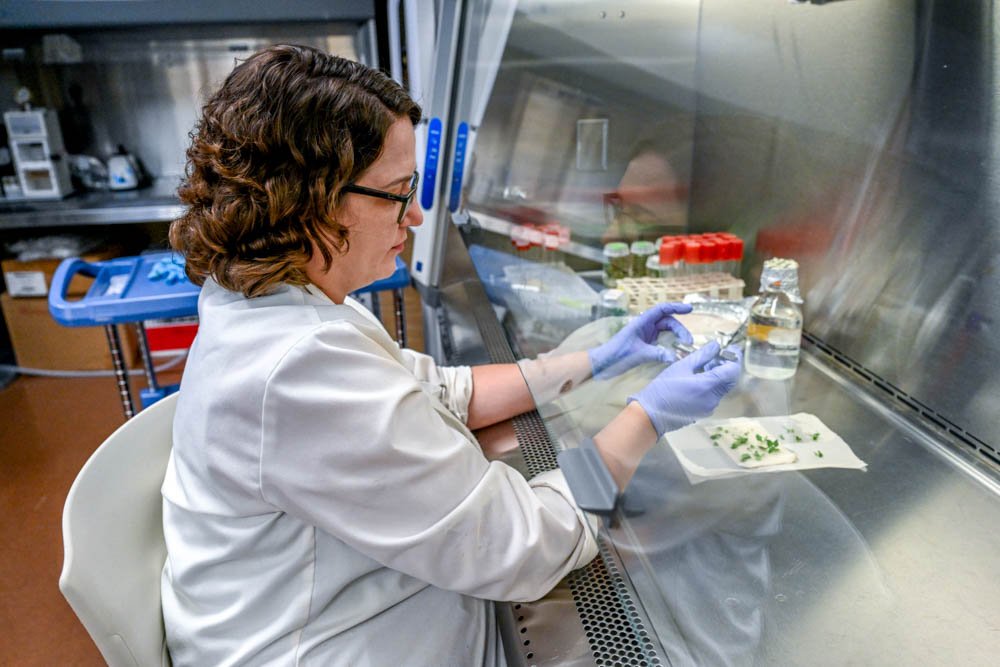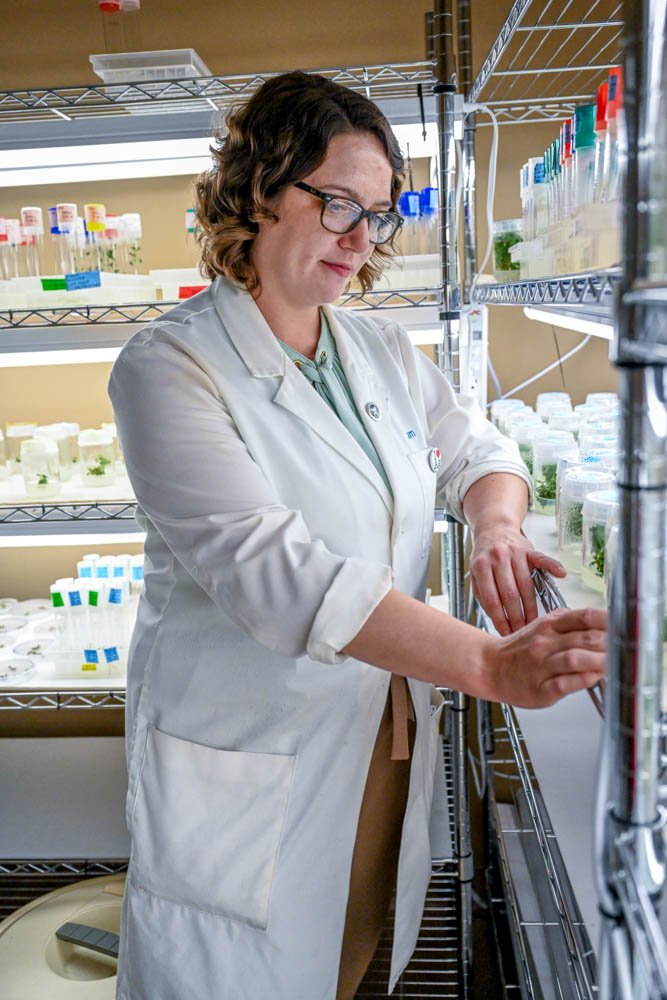Samantha Sherman (known by many as Sam) loves science, gardening and birdwatching. She fit right in as an aggie Wildcat when pursuing a master’s degree at Fort Valley State University. Sherman is originally from Scituate, a small town in Rhode Island, but has been living in Georgia for more than half her life. She earned a Bachelor of Science in biology from Middle Georgia State University in 2018 and then a Master of Science in biotechnology from FVSU in 2021. She is now extending her skills and experience at her alma mater as a research assistant in Dr. Nirmal Joshee’s laboratory.
1. Why did you pursue becoming a Wildcat in agriculture at Fort Valley State University?
“I became interested in the biotechnology graduate program while I was an undergraduate at Middle Georgia State University. Dr. Nirmal Joshee came to talk about the program and his lab. I had already been interested in medicinal plants, as well as plant propagation and plant tissue culture, for some time. When I learned I could do that work at Fort Valley, I knew this would be a good place for me to pursue my master’s degree.”
2. Who or what inspired you to study your major?
“I was inspired by many of my past professors who helped me as an undergrad, as well as my parents who always pushed me to pursue my education.”
3. What agricultural science project impacted your life as a student? Why?
“As a student, I always loved having science projects where we got to grow something. I can remember growing herbs in the classroom as an elementary student and using them to make a pizza sauce. I think it is great when we can put our time into making good high-quality food that we can enjoy eating.”
4. Why did you return to your alma mater to lend your research skills?
“I decided to return to FVSU because I love the work I am doing here. It means a lot to me to be able to continue working on the projects that have become so important to me. Being here gives me the opportunity to continue to learn about biotechnology while being able to share that same knowledge with others.”

5. What are your duties as a research assistant? Do you work a lot with students?
“As a research assistant, I train graduate students and interns in the lab, teach the labs for graduate courses, maintain our in vitro germplasm composed of more than 25 plant species, oversee greenhouse operations, maintain lab equipment, order supplies for the lab and greenhouse, and conduct experiments in the lab.”
6. What unique opportunities have you been afforded while serving in this role?
“I have been given the chance to serve as ambassador on the board of the American Council for Medicinally Active Plants. In addition to presenting at last year’s conference and this year’s upcoming conference, I helped organize last year’s conference, as well as this year’s upcoming conference, which will be at West Virginia State University this October. I have also been able to continue publishing my research, which is very important to me. I have published six peer-reviewed journal articles and one book chapter and have more manuscripts in the works for the future.”
7. What is your elevator speech to encourage students to pursue a degree in agriculture?
“The things we need the most in life are food, clothing and shelter. If we don’t have those basic needs met, we can’t do much else. Agriculture is the way food is made available to the world, and it feels good knowing that I contribute to that. My contribution might be very different than my grandfather’s (who was a farmer), but it is something I am very proud of.”
8. How are you using your research experience to help others, and what are your future goals?
“I think being able to work with my students and teaching them in the lab is a great way that I can help others. Also, being able to publish the research I do for medicinal plants gives me a chance to help others in a couple of ways. First, by enlightening people about the medicinal plants I work with and to facilitate other researchers to do better work with these plants. For my future goals, I am interested in getting a Ph.D. soon so that I can have more chances to move further in research or academics.”

